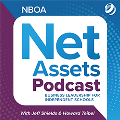May 11, 2020, 4:33 PM
(From Tes) As many as 30% of private schools in the UK could face closure because of the coronavirus pandemic, according to a new report from Tes. The fee discounts that schools are having to offer to parents suffering their own financial difficulties are one factor; many tuition-dependent schools are receiving less revenue but still need to pay teachers. Many schools are likely to apply for loans in the summer, but lack of clarity around reopening dates and enrollment numbers may make lenders wary to approve loans.
(From Venable LLP) New guidance from the SBA appears to add a new standard for independent schools receiving a PPP loan under the CARES Act, namely that schools must "assess their economic need for a PPP loan." In light of the recent focus on independent schools and their endowments, schools should use the time provided under the Safe Harbor Rule to evaluate (or reevaluate) their good faith certification of their need for a loan, including whether they have access to other sources of liquidity, according to experts at Venable LLP. What steps should schools take in assessing and documenting their need?
(From Vox) A new inspector general report finds fault in the recent SBA guidance issued regarding how PPP loans may be spent. The report found that the SBA rules are not in line with the law. The SBA says most of the funds must be spent on payroll, not rent or utilities. The inspector general determined that the rules could be harming “tens of thousands of borrowers” who participated in the first round of funding. The report also included several recommendations for how the SBA can improve its implementation, including collecting demographic data when businesses complete the paperwork for loan forgiveness.
(From The Chronicle of Philanthropy) One in five donors say they won’t be giving to charity until the economy is back up and running, according to a new survey of 630 U.S. adults in late April. Fifty-three percent said they plan to continue giving but will do so "more carefully" than before. Fewer donations to charity may be due in part to rising rates of anxiety in U.S. households, as 25% of respondents said finding it "very challenging or extremely challenging" to meet their financial obligations.

Listen to the latest episode of the Net Assets podcast.